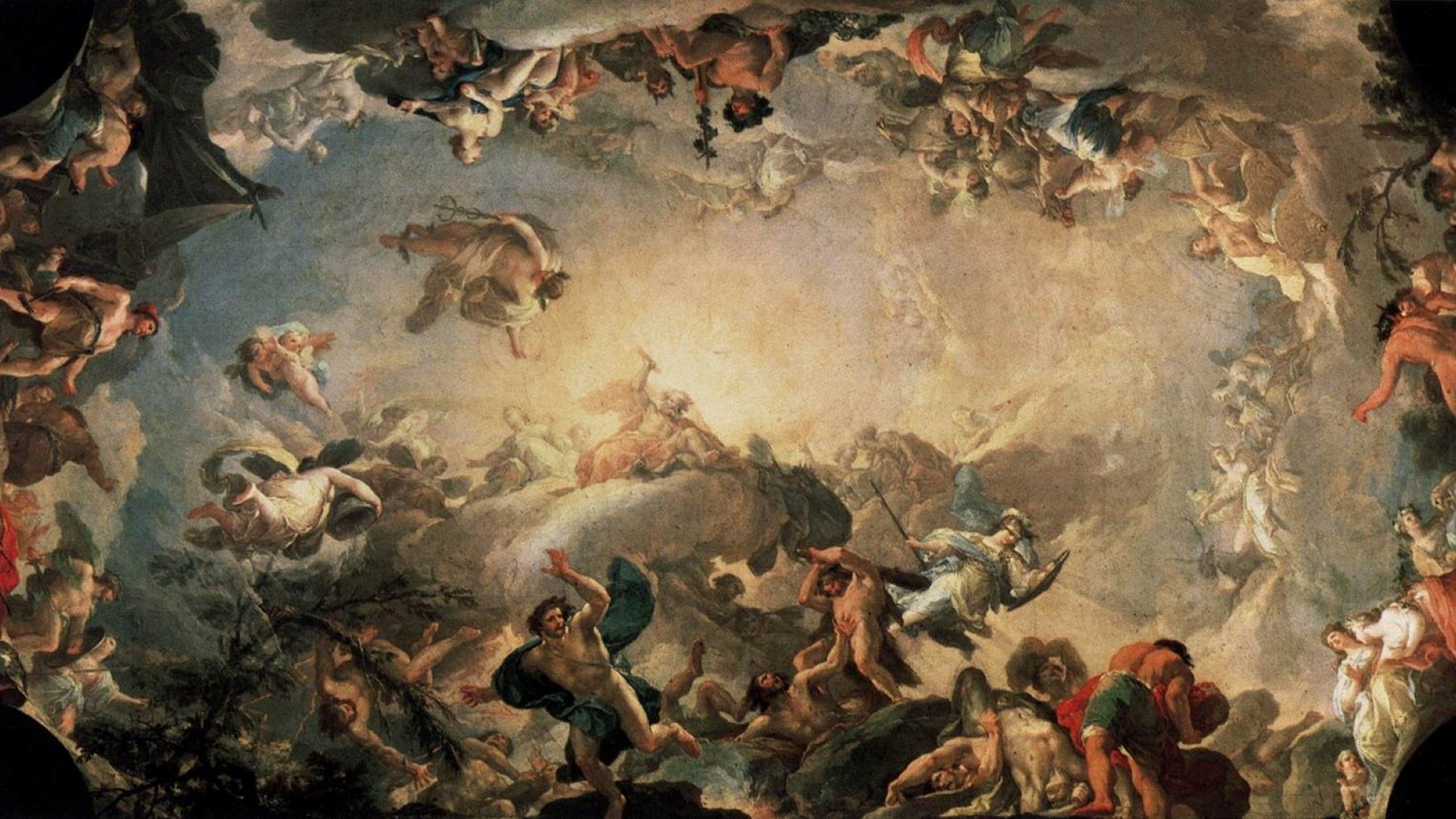
Electra
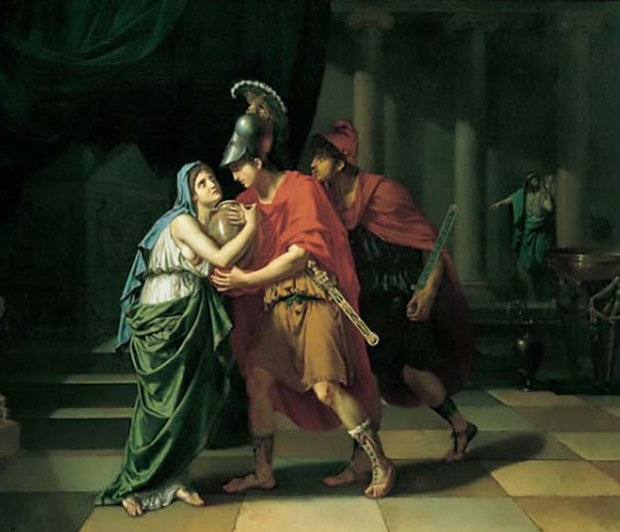
In Greek mythology, there are two figures called Electra. The earlier Electra was one of seven daughters of the Titan Atlas and Pleione. The seven sisters together were known as the Pleiades and eventually became a constellation, or group of stars, by the same name.
According to the story, Electra was the mother of Dardanus, the founder of the city of Troy. When the Greeks destroyed Troy during the Trojan War, she left her place in the constellation to avoid seeing the city's destruction.
The second Electra appears in plays by the Greek writers Aeschylus, Sophocles, and Euripides. In their works, Electra was the daughter of Agamemnon, the leader of the Greeks in the Trojan War, and his wife, Clytemnestra.
Electra's parents were King Agamemnon and Queen Clytemnestra. Her sisters were Iphigeneia and Chrysothemis, and her brother was Orestes.
In the Iliad, Homer is understood to be referring to Electra in mentioning "Laodice" as a daughter of Agamemnon.
Electra, as with all of her siblings, having been born before the events of the Trojan War. Though, even before the fighting started at Troy, Electra lost one sibling, for Electra’s sister, Iphigenia, was said to have been offered up as a sacrifice at Aulis.
King Agamemnon of Mycenae (or Argos in some versions of the myth) had returned from the Trojan War with his new concubine, Cassandra.
His wife, Clytemnestra, who had borne a grudge against Agamemnon for many years since he had sacrificed their daughter Iphigenia at the start of the Trojan War in order to placate the gods, and who had in the meantime taken Agamemnon‘s ambitious cousin Aegisthus as a lover, killed both Agamemnon and Cassandra.
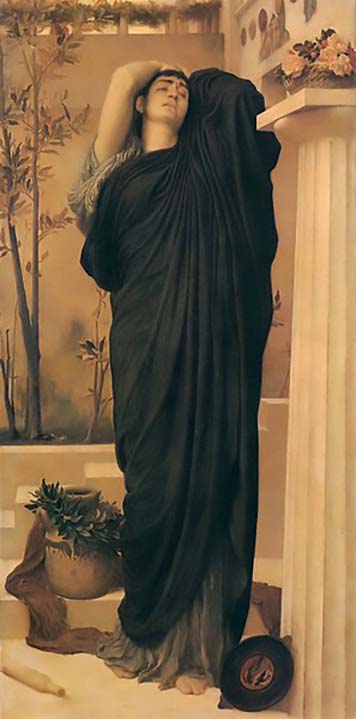
Electra was not at home when her father returned, but she returned shortly afterwards, only to find that Agamemnon, and Cassandra, had been murdered by her mother Clytemnestra, and Clytemnestra’s lover, Aegisthus.
Recognising that Aegisthus would now see her brother, Orestes, as a threat, Electra, along with some loyal servants, whisked him away before he too could be killed. The youthful Orestes was whisked away to the kingdom of Strophius, where Orestes grew into adulthood alongside Strophius’ son, Pylades.
Electra remained in Mycenae, where she continued to mourn the loss of her father. Aegisthus might have sought to do harm to her, but Clytemnestra stayed his hand. Aegsithus though, was fearful that eventually Electra might give birth to a son, who would one day seek vengeance upon Aegisthus.
Some say that Electra was thus married off to a peasant many, whose son would not have the standing that might call for vengeance. In this case, it was said that the peasant did not have relations with Electra recognising the plight that she faced.
Others though state that Electra remained unwed in the palace of Mycenae, but Electra longed for the day when her father’s death might be avenged. For Electra saw it as a great crime committed by her mother, although Clytemnestra saw it as a just killing, for Agamemnon had killed their daughter, Iphiegnia.
In the mean time Orestes grew into adulthood, and when 20 years of age, eh received a proclamation from the Oracle of Delphi, which Orestes took to mean that he was to kill his mother and Aegisthus.
Orestes, now a grown man, arrives in Mycenae in secret with his friend Pylades of Phocis and an old attendant or tutor. They hatch a plan to gain entrance to Clytemnestra’s palace by announcing that Orestes was dead, and that the two men (Orestes and Pylades) are arriving to deliver an urn with his remains.
Electra has never come to terms with her father Agamemnon’s murder and laments his death. She argues bitterly with her sister Chrysothemis over her accommodation with her father’s killers, and with her mother, whom she had never forgiven for the murder. Her only hope is that one day her brother Orestes will return to avenge Agamemnon.
When the messenger (the old man of Phocis) arrives with news of the death of Orestes, therefore, Electra is devastated, although Clytemnestra is relieved to hear it. Chrysothemis mentions that she has seen some offerings and a lock of hair at Agamemnon’s tomb and concludes that Orestes must have returned, but Electra dismisses her arguments, convinced that Orestes is now dead. Electra proposes to her sister that it is now up to them to kill their hated step-father Aegisthus, but Chrysothemis refuses to help, pointing out the impracticability of the plan.
When Orestes arrives at the palace, carrying the urn supposedly containing his own ashes, he does not recognize Electra at first, nor she him. Belatedly realizing who she is, though, Orestes reveals his identity to his emotional sister, who almost betrays his identity in her excitement and joy that he is alive.
With Electra now involved in their plan, Orestes and Pylades enter the house and slay his mother, Clytemnestra, while Electra keeps watch for Aegisthus. They hide her corpse under a sheet and present it to Aegisthus when he returns home, claiming it to be the body of Orestes. When Aegisthus lifts the veil to discover his dead wife, Orestes reveals himself, and Aegisthus is escorted off to be killed at the hearth, the same location Agamemnon was slain.
For the murder of his mother, Orestes would be pursued by the Erinyes, although such punishment was not given to Electra.
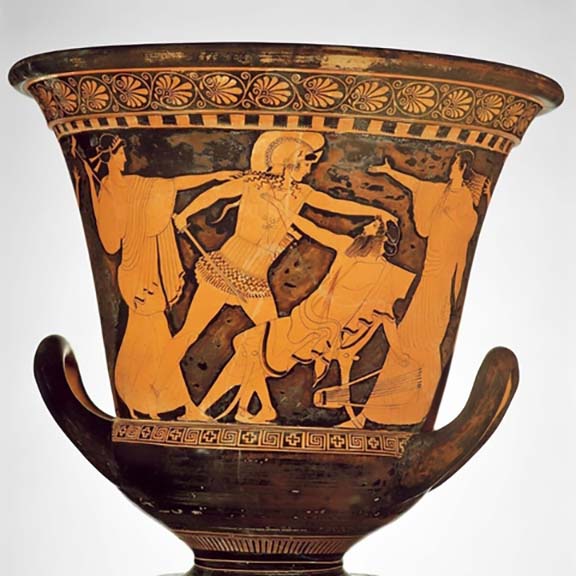
It was though said that both Orestes and Electra were sentenced to death by the Mycenaean people for the crime of matricide.
Now Electra sought to call upon the protection of her uncle, Menelaus, but when it was not forthcoming, Electra sought a new plan, which involved killing Helen, and abducting Hermione, although this plan came to nothing.
Electra though feared that she had once again lost her brother, for news came to Mycenae that Orestes had been killed in Tauris.
Electra travelled to Delphi to seek guidance, but there, she was falsely told that a woman who stood nearby was the murderer of her brother.
Thus, Electra took up a weapon, but before she could harm the woman, the very much alive Orestes appeared, and the woman was revealed to be Electra’s sister Iphigenia. So rather than losing a brother, Electra had re-found a sister.
Orestes would, once free of the Erinyes, reclaim his father’s throne, and greatly expanded the kingdom. Orestes would then find a suitable husband for Electra, in the form of his friend, Pylades.
After the marriage of Electra to Pylades, little more is said about the daughter of Agamemnon. It was commonly said that Electra gave birth to two sons, Medon and Strophious, though there is nothing said about these two sons, nor is there a record of the death of Electra.
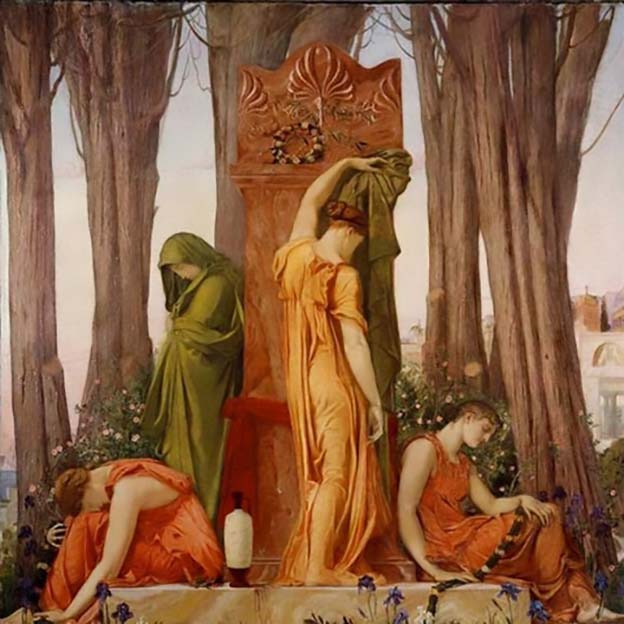
Sources
Evans, Bergen (1970). Dictionary of Mythology. New York: Dell Publishing.
Vellacott, Philip (1963). Euripides: Medea and Other Plays. London: Penguin Classics.
Fagles, Robert (1977). Aeschylus: The Oresteia. London: Penguin Classics.
The Oresteia, a trilogy of plays by Aeschylus
Electra, play by Sophocles
Electra, play by Euripides
Orestes, play by Euripides
"Wikipedia"
"Wikipedia"
Our Mobile Application
Check out Our Mobile Application "Ancient Greece Reloaded"


